Find Help
More Items From Ergsy search
-

IBS and your mind: Is there a connection?
Relevance: 100%
-

IBS and your mind: Is there a connection?
Relevance: 99%
-

About irritable bowel syndrome (IBS)
Relevance: 48%
-

What is irritable bowel syndrome (IBS)?
Relevance: 45%
-
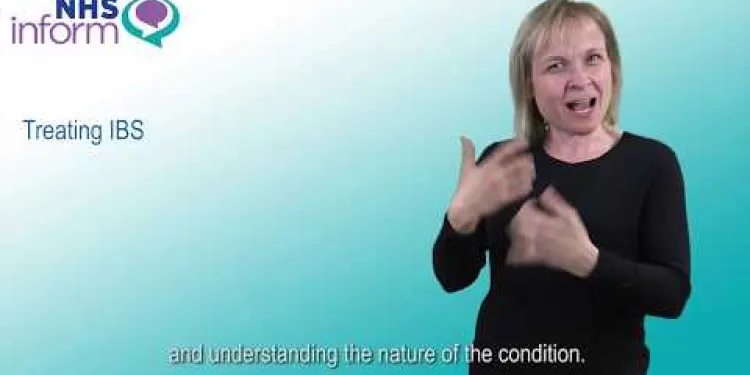
Treating irritable bowel syndrome (IBS)
Relevance: 45%
-

Causes of irritable bowel syndrome (IBS)
Relevance: 44%
-

Causes of irritable bowel syndrome (IBS)
Relevance: 43%
-
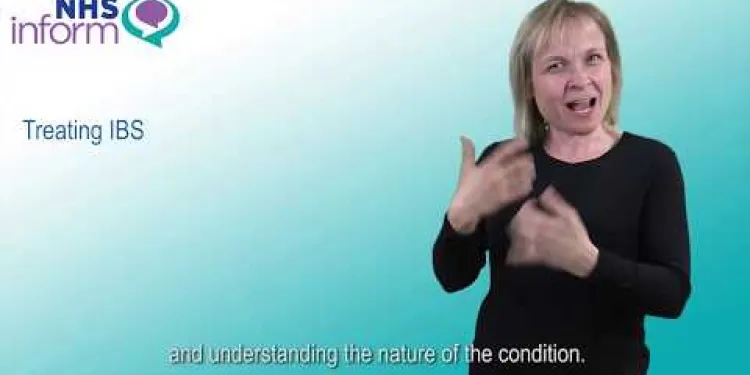
Treating irritable bowel syndrome (IBS)
Relevance: 43%
-

About irritable bowel syndrome (IBS)
Relevance: 43%
-

Symptoms of irritable bowel syndrome (IBS)
Relevance: 41%
-

What is irritable bowel syndrome (IBS)?
Relevance: 41%
-
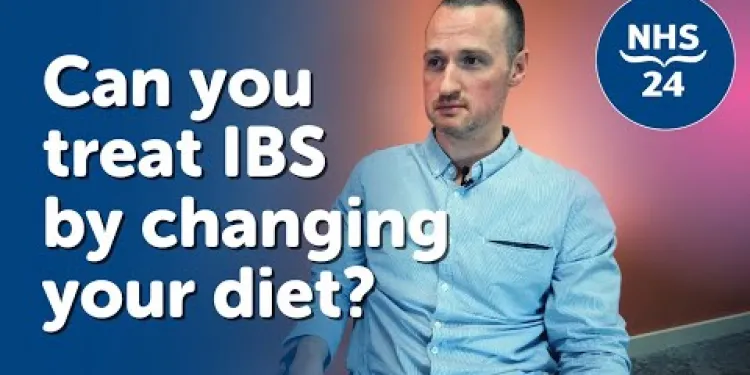
Does your diet affect IBS?
Relevance: 41%
-
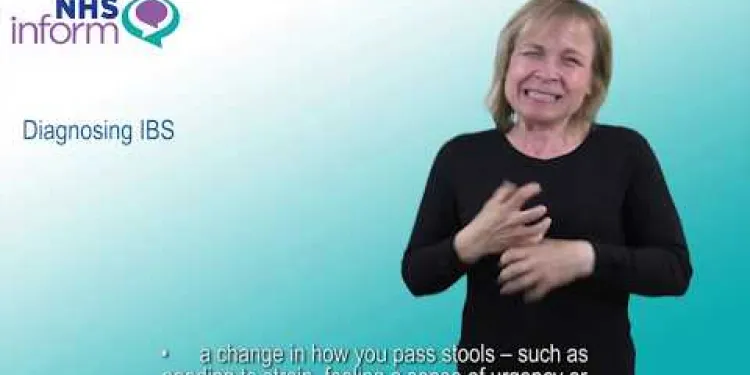
Diagnosing irritable bowel syndrome (IBS)
Relevance: 41%
-

Symptoms of irritable bowel syndrome (IBS)
Relevance: 41%
-

Will travel insurance cover missed connections?
Relevance: 36%
-

Why are there unfamiliar apps connected to my social media account?
Relevance: 30%
-

Does holiday insurance cover travel delays or missed connections?
Relevance: 29%
-

How can I secure my phone's internet connection?
Relevance: 29%
-

How is gut health connected to the aging process?
Relevance: 25%
-

What is the connection between GLP-1 and insulin?
Relevance: 24%
-

Is there a connection between cortisol and the immune system?
Relevance: 23%
-

Does stress impact gut health as we age?
Relevance: 19%
-
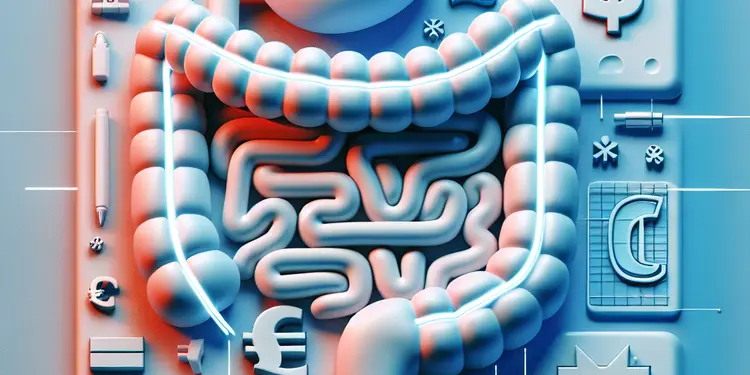
Are there specific gut-related diseases that become more common with age?
Relevance: 16%
-

How does walking to work impact mental health?
Relevance: 16%
-

Essential Tips for Mental Health and Well-Being Amidst Rising Living Costs
Relevance: 14%
-

Can lifestyle changes help with postnatal depression?
Relevance: 14%
-
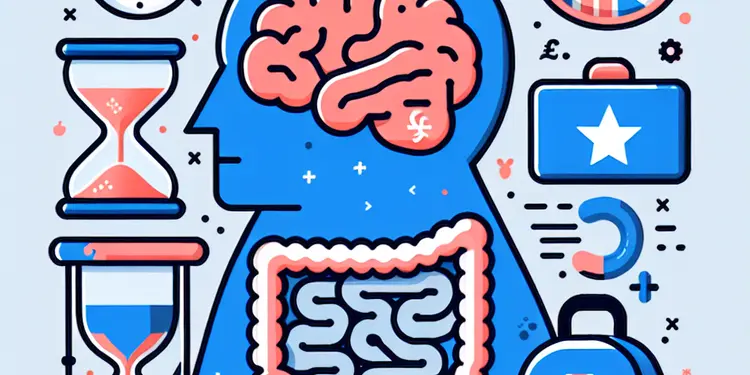
Can gut health affect mental health as one ages?
Relevance: 13%
-

How can older adults find new hobbies that can be done at home?
Relevance: 13%
-

Can lifestyle changes during menopause help reduce dementia risk?
Relevance: 13%
-

How important is self-care for carers of Alzheimer's patients?
Relevance: 13%
-

What are some signs of poor gut health?
Relevance: 12%
-

Innovative App Aims to Combat Loneliness Among Elderly
Relevance: 12%
-

How can carers manage stress while caring for someone with Alzheimer's?
Relevance: 12%
-

How does social media contribute to the loneliness epidemic?
Relevance: 12%
-

What is gut health?
Relevance: 12%
-

What should someone do if they suspect they have health-related anxiety?
Relevance: 11%
-

Are there self-help strategies for managing health-related anxiety?
Relevance: 11%
-

What benefits do new hobbies provide for older adults?
Relevance: 11%
-

How can I make walking to work more enjoyable?
Relevance: 11%
-

How does a battery-powered Ring Doorbell Camera work?
Relevance: 11%
IBS and Your Mind: Is There a Connection?
Understanding Irritable Bowel Syndrome (IBS)
Irritable Bowel Syndrome (IBS) is a common gastrointestinal disorder that affects the large intestine. Symptoms often include abdominal pain, bloating, and changes in bowel habits like diarrhea or constipation. While the exact cause remains unclear, IBS is thought to result from a complex interaction of gut-brain dysfunction, motility issues, and hypersensitivity.The Gut-Brain Axis
The gut-brain axis is a term used to describe the two-way communication between the gastrointestinal tract and the brain. This connection involves various pathways, including the nervous system, hormones, and immune factors. Research has shown that the gut-brain axis plays a crucial role in maintaining digestive health and can contribute to IBS symptoms.Mental Health and IBS
It's well-documented that mental health conditions, such as anxiety and depression, can exacerbate IBS symptoms. In the United Kingdom, more than 40% of IBS sufferers report significant emotional stress. Mood disorders can alter gut function by influencing the autonomic nervous system, which controls digestive processes. Stress can also increase gut sensitivity and cause inflammation, further aggravating IBS symptoms.Stress Management and Symptom Relief
Managing stress and mental health can be effective in alleviating IBS symptoms. Cognitive Behavioural Therapy (CBT), mindfulness meditation, and other stress-reduction techniques are increasingly being recommended by healthcare professionals in the UK. These approaches aim to alter the brain's response to stress, thereby improving gut health.Medical Support and Resources
For residents in the UK, the NHS offers various resources for managing IBS, including dietary recommendations, mental health support, and medical treatments. Websites like IBS Network also provide valuable information and community support for those dealing with this condition.Conclusion
The connection between IBS and the mind is undeniable. Understanding this relationship can empower you to take a comprehensive approach to managing your condition. By integrating stress management, mental health support, and medical advice, you can improve your quality of life and reduce IBS symptoms.IBS and Your Mind: Is There a Connection?
What is Irritable Bowel Syndrome (IBS)?
Irritable Bowel Syndrome, or IBS, is a problem that happens in your stomach. It affects the big part of your intestine. People with IBS often feel tummy pain, bloating, and have changes in toilet habits. Sometimes they get diarrhea (runny poo) or constipation (hard poo). We don't know exactly what causes IBS. Doctors think it happens because of problems between your brain and tummy, how your tummy moves, and how sensitive it is.The Gut-Brain Axis
The gut-brain axis is a way your tummy and brain talk to each other. They send messages back and forth. This talking happens through nerves, hormones, and your immune system. Scientists found out that this talking is important for keeping your tummy healthy. It can be a reason why some people have IBS symptoms.Mental Health and IBS
If you feel worried or sad, it can make IBS worse. In the UK, more than 40 out of 100 people with IBS say their feelings cause a lot of stress. Feeling worried can change how your tummy works. Stress can make your tummy hurt more and increase swelling.Helping with Stress and IBS Symptoms
Finding ways to feel less stressed can help with IBS. Things like Cognitive Behavioural Therapy (CBT) and mindfulness meditation are good ideas. These help your brain feel calmer, which can make your tummy feel better too.Getting Help and Finding Information
In the UK, the NHS can help people with IBS. They give advice on what to eat and help with feelings and medicines. You can also find help on websites like IBS Network. They give good advice and connect you with other people with IBS.Conclusion
IBS and how you feel are connected. Knowing this can help you find the best way to manage IBS. By reducing stress, getting help for your feelings, and listening to your doctor, you can feel better and have fewer tummy problems.Frequently Asked Questions
What is Irritable Bowel Syndrome (IBS)?
IBS is a common condition affecting the digestive system, causing symptoms like stomach cramps, bloating, diarrhoea, and constipation. It's a chronic condition that requires long-term management.
What are the main symptoms of IBS?
The main symptoms of IBS include stomach cramps, bloating, diarrhoea, constipation, and changes in bowel habits. These symptoms can vary in severity from one person to another.
Is there a connection between IBS and mental health?
Yes, there is a connection between IBS and mental health. Stress, anxiety, and depression can exacerbate IBS symptoms. The gut-brain axis plays a crucial role in this relationship.
How can stress impact IBS symptoms?
Stress can trigger or worsen IBS symptoms by affecting the gut-brain axis. This can lead to increased gut sensitivity and altered bowel movements.
Can psychological therapies help with IBS?
Yes, psychological therapies such as cognitive behavioural therapy (CBT) and gut-directed hypnotherapy have been shown to help manage IBS symptoms effectively.
Are antidepressants used to treat IBS?
Antidepressants, particularly low-dose tricyclic antidepressants, are sometimes prescribed to help relieve IBS symptoms, especially if pain and discomfort are significant.
How can diet affect IBS?
Diet plays a critical role in managing IBS. Certain foods can trigger symptoms, while dietary changes, such as a low FODMAP diet, can help reduce symptoms.
What is the low FODMAP diet?
The low FODMAP diet involves reducing the intake of fermentable oligosaccharides, disaccharides, monosaccharides, and polyols, which are types of carbohydrates that can cause bloating and gas in IBS sufferers.
Can probiotics help with IBS?
Probiotics may help some people with IBS by improving the balance of good bacteria in the gut. However, their effectiveness can vary from person to person.
Does IBS increase the risk of other health conditions?
IBS itself does not increase the risk of serious health conditions like cancer, but it can significantly affect the quality of life and mental health of those who suffer from it.
What lifestyle changes can help manage IBS?
Lifestyle changes such as stress management, regular exercise, adequate sleep, and maintaining a healthy diet can help manage IBS symptoms.
Can medications cure IBS?
There is no cure for IBS, but medications can help manage symptoms. These may include antispasmodics, laxatives, antimotility medicines, and sometimes antidepressants.
Is IBS a lifelong condition?
IBS is usually a chronic, lifelong condition, but symptoms can vary over time. Some people may experience periods of improvement, while others may have persistent symptoms.
Can IBS cause severe complications?
While IBS can cause significant discomfort and impact the quality of life, it does not lead to severe complications or increase the risk of severe diseases.
How important is it to see a healthcare professional for IBS?
It is important to see a healthcare professional for an accurate diagnosis and management plan for IBS. They can provide guidance on treatment options and lifestyle changes to help manage the condition effectively.
What is Irritable Bowel Syndrome (IBS)?
Irritable Bowel Syndrome, or IBS, is when your tummy feels uncomfortable a lot. It can make your tummy hurt, feel tight, or make you want to rush to the bathroom. IBS is not nice, but it is not dangerous.
If you find reading hard, try using pictures to help understand better. Listening to someone explain can also be a great help.
IBS is a health problem that affects your tummy. It can make your tummy hurt or feel too full. It can also make you go to the bathroom too much or not enough. IBS doesn't go away, so you need to take care of it for a long time.
What signs show that someone has IBS?
The big signs of IBS are tummy cramps, feeling bloated, runny poo (diarrhoea), hard poo (constipation), and changes in how often you need to go to the toilet. These signs can be different for each person.
Does IBS affect how we feel?
When we talk about IBS, we mean tummy troubles like stomach aches or needing the toilet a lot. But did you know IBS can also change how we feel in our minds? Some people with IBS might feel sad or worried a lot.
If you have IBS and it makes you feel upset, it’s a good idea to talk to someone. You could speak to a doctor, a nurse, or a person you trust. They can help.
Yes, IBS and mental health are linked. Feeling stressed, worried, or sad can make IBS worse. The way your brain and tummy talk to each other is very important for this.
How does stress affect IBS?
Stress can make IBS worse. IBS stands for Irritable Bowel Syndrome. It means your stomach can hurt and you might have to use the bathroom a lot.
When you feel stress, your tummy might feel upset. This can make IBS symptoms like pain and going to the bathroom more often happen.
To feel better, try to relax. You can take deep breaths or listen to calm music. Talking to someone you trust can also help. These things might help your tummy feel better.
Feeling worried or stressed can upset your tummy. This can happen because your brain talks to your belly. When you are stressed, your tummy might start to hurt more or work differently.
Can talking therapies help with tummy troubles?
Yes, talking therapies like CBT (which helps change how you think) and hypnotherapy (which uses relaxation and imagination) can help manage IBS symptoms.
Do people use depression medicine to help with tummy problems?
Doctors sometimes give medicine called antidepressants to help with IBS, which is a problem with your tummy. They use a small amount of a special kind of antidepressant to help if your belly hurts a lot.
How does food affect IBS?
IBS stands for Irritable Bowel Syndrome. It means your tummy might hurt or feel funny a lot.
The food we eat can make our tummy feel better or worse.
Some foods might upset your tummy. This can make you feel pain, have gas, or need to go to the bathroom a lot.
Try to eat slowly and chew your food well. This can help your tummy feel better.
Keep a diary of what you eat and how your tummy feels. This can help you find which foods are good or bad for you.
Ask a grown-up or doctor for help. They can also tell you good foods to eat for IBS.
What you eat is important if you have IBS. Some foods can make symptoms worse, but changing what you eat can help. A diet called "low FODMAP" can make you feel better.
What is the low FODMAP diet?
The low FODMAP diet helps people with tummy problems.
It gets rid of certain foods to make your tummy feel better.
It is important to follow the low FODMAP diet with help from a doctor or dietitian.
You can use picture cards to remember which foods to eat or not eat.
The low FODMAP diet means eating less of certain carbohydrates. These carbs are called fermentable oligosaccharides, disaccharides, monosaccharides, and polyols. They can make some people's tummies feel bloated and gassy, especially for those with IBS (Irritable Bowel Syndrome).
Can probiotics help with IBS?
Some people have a tummy problem called IBS. It can make your tummy hurt or feel funny.
Probiotics are tiny helpers that live in your tummy. They are good for your tummy.
Sometimes, probiotics can help people feel better when they have IBS.
They can help the tummy work better and stop it from hurting.
If you think probiotics might help you, talk to your doctor or a grown-up.
You can also find probiotics in some foods like yogurt.
Using pictures and stories can help understand more about IBS and probiotics.
Probiotics can help some people with IBS feel better. They help put more good bacteria in the tummy. But, they don't work the same for everyone.
Can IBS make you more likely to get other health problems?
IBS (Irritable Bowel Syndrome) is a tummy problem. It can make your stomach hurt and cause issues with going to the toilet.
IBS does not cause other big health problems, but if you have IBS, you might also feel tired, sad, or worried a lot. It's good to talk to a doctor if you're not feeling well.
Here are some tips to help you:
- Eat healthy foods.
- Try to relax and not stress too much.
- Do some exercise like walking or playing outside.
If you have questions or feel unwell, ask someone you trust or a doctor for help. They can help you feel better.
Having IBS does not make you more likely to get very sick with things like cancer. But it can make day-to-day life hard and might make you feel upset or worried.
How can I make my tummy feel better?
Here are some things that might help:
- Eat slowly and chew your food well.
- Drink plenty of water.
- Have smaller meals more often.
- Try to avoid eating lots of spicy or fatty foods.
- Keep a diary to see which foods upset your tummy.
- Find time to relax and rest.
- Exercise like walking or playing can help you feel better.
- Talk to someone about how you feel.
You can also ask a doctor or nurse for more help.
Making small changes in how you live can help with tummy problems like IBS. Here are some things you can do:
- Try to stay calm and not worry too much. You can do this by taking deep breaths or doing yoga.
- Exercise often, like playing outside or going for walks, to help your body stay strong.
- Make sure you sleep enough each night so you feel rested.
- Eat healthy foods, like fruits and veggies, to keep your tummy happy.
Using tools like a planner can help you remember to do these things. Ask an adult if you need help!
Can medicines make IBS go away?
There is no cure for IBS, but medicine can help you feel better. You might use medicine to relax the tummy, help you poo, stop you going to the toilet too much, or even medicine for when you feel very sad or worried.
Does IBS last forever?
IBS means Irritable Bowel Syndrome. It can make your tummy feel sore and upset. Some people have IBS for a long time. It might not go away, but you can find ways to feel better.
Here are some tips:
- Eat healthy foods like fruits and vegetables.
- Try to stay away from foods that make your tummy hurt.
- Talk to a doctor who can help you.
- Use tools like special apps or diaries to track what you eat and how you feel.
These tips can help make living with IBS easier.
IBS is a condition that can last for a long time, even your whole life. How you feel can change over time. Sometimes it might get better, and other times you might not feel so good.
Here are some ways to help:
- Talk to a doctor or nurse. They can give advice to help you feel better.
- Eat foods that are good for your tummy, like fruits and vegetables.
- Keep a diary to track what you eat and how you feel.
- Exercise regularly to help your tummy feel better.
Can IBS be very serious?
IBS means Irritable Bowel Syndrome. It is a problem with your tummy (stomach) and bowels.
IBS can make you feel really uncomfortable, like having a sore tummy or needing to go to the toilet a lot. But, it usually doesn't cause big problems.
If you feel very sick, it is important to talk to a doctor. They can help you feel better.
Ask someone you trust to go with you when you talk to the doctor. They can help you remember what the doctor says.
You can also write down how you feel each day. This can help the doctor understand what is happening.
IBS can make your tummy hurt a lot and make you feel unwell. But don't worry—it won't cause big health problems, and it won't make you get really sick.
Why is it important to see a doctor for IBS?
IBS stands for irritable bowel syndrome. It's a problem with your tummy that can make you feel pain or cause other issues. Here’s why talking to a doctor can help:
- Get the right help: A doctor can tell you if you have IBS and help you feel better.
- Learn about food: A doctor can help you learn which foods are good or bad for your tummy.
- Feel better: Doctors can give you medicine or advice to stop the pain.
If you need help understanding, you can:
- Ask a family member or friend to explain things.
- Use pictures or drawings to make things clear.
- Write down questions you want to ask the doctor.
Seeing a doctor can help you feel better and learn how to take care of your tummy.
It is very important to see a doctor to find out if you have IBS and how to treat it. The doctor can tell you what treatments and changes can help you feel better.
Useful Links
Have you found an error, or do you have a link or some information you would like to share? Please let us know using the form below.
-->
This website offers general information and is not a substitute for professional advice.
Always seek guidance from qualified professionals.
If you have any medical concerns or need urgent help, contact a healthcare professional or emergency services immediately.
Some of this content was generated with AI assistance. We’ve done our best to keep it accurate, helpful, and human-friendly.
- Ergsy carfully checks the information in the videos we provide here.
- Videos shown by Youtube after a video has completed, have NOT been reviewed by ERGSY.
- To view, click the arrow in centre of video.
- Most of the videos you find here will have subtitles and/or closed captions available.
- You may need to turn these on, and choose your preferred language.
- Go to the video you'd like to watch.
- If closed captions (CC) are available, settings will be visible on the bottom right of the video player.
- To turn on Captions, click settings .
- To turn off Captions, click settings again.
More Items From Ergsy search
-

IBS and your mind: Is there a connection?
Relevance: 100%
-

IBS and your mind: Is there a connection?
Relevance: 99%
-

About irritable bowel syndrome (IBS)
Relevance: 48%
-

What is irritable bowel syndrome (IBS)?
Relevance: 45%
-

Treating irritable bowel syndrome (IBS)
Relevance: 45%
-

Causes of irritable bowel syndrome (IBS)
Relevance: 44%
-

Causes of irritable bowel syndrome (IBS)
Relevance: 43%
-

Treating irritable bowel syndrome (IBS)
Relevance: 43%
-

About irritable bowel syndrome (IBS)
Relevance: 43%
-

Symptoms of irritable bowel syndrome (IBS)
Relevance: 41%
-

What is irritable bowel syndrome (IBS)?
Relevance: 41%
-

Does your diet affect IBS?
Relevance: 41%
-

Diagnosing irritable bowel syndrome (IBS)
Relevance: 41%
-

Symptoms of irritable bowel syndrome (IBS)
Relevance: 41%
-

Will travel insurance cover missed connections?
Relevance: 36%
-

Why are there unfamiliar apps connected to my social media account?
Relevance: 30%
-

Does holiday insurance cover travel delays or missed connections?
Relevance: 29%
-

How can I secure my phone's internet connection?
Relevance: 29%
-

How is gut health connected to the aging process?
Relevance: 25%
-

What is the connection between GLP-1 and insulin?
Relevance: 24%
-

Is there a connection between cortisol and the immune system?
Relevance: 23%
-

Does stress impact gut health as we age?
Relevance: 19%
-

Are there specific gut-related diseases that become more common with age?
Relevance: 16%
-

How does walking to work impact mental health?
Relevance: 16%
-

Essential Tips for Mental Health and Well-Being Amidst Rising Living Costs
Relevance: 14%
-

Can lifestyle changes help with postnatal depression?
Relevance: 14%
-

Can gut health affect mental health as one ages?
Relevance: 13%
-

How can older adults find new hobbies that can be done at home?
Relevance: 13%
-

Can lifestyle changes during menopause help reduce dementia risk?
Relevance: 13%
-

How important is self-care for carers of Alzheimer's patients?
Relevance: 13%
-

What are some signs of poor gut health?
Relevance: 12%
-

Innovative App Aims to Combat Loneliness Among Elderly
Relevance: 12%
-

How can carers manage stress while caring for someone with Alzheimer's?
Relevance: 12%
-

How does social media contribute to the loneliness epidemic?
Relevance: 12%
-

What is gut health?
Relevance: 12%
-

What should someone do if they suspect they have health-related anxiety?
Relevance: 11%
-

Are there self-help strategies for managing health-related anxiety?
Relevance: 11%
-

What benefits do new hobbies provide for older adults?
Relevance: 11%
-

How can I make walking to work more enjoyable?
Relevance: 11%
-

How does a battery-powered Ring Doorbell Camera work?
Relevance: 11%


